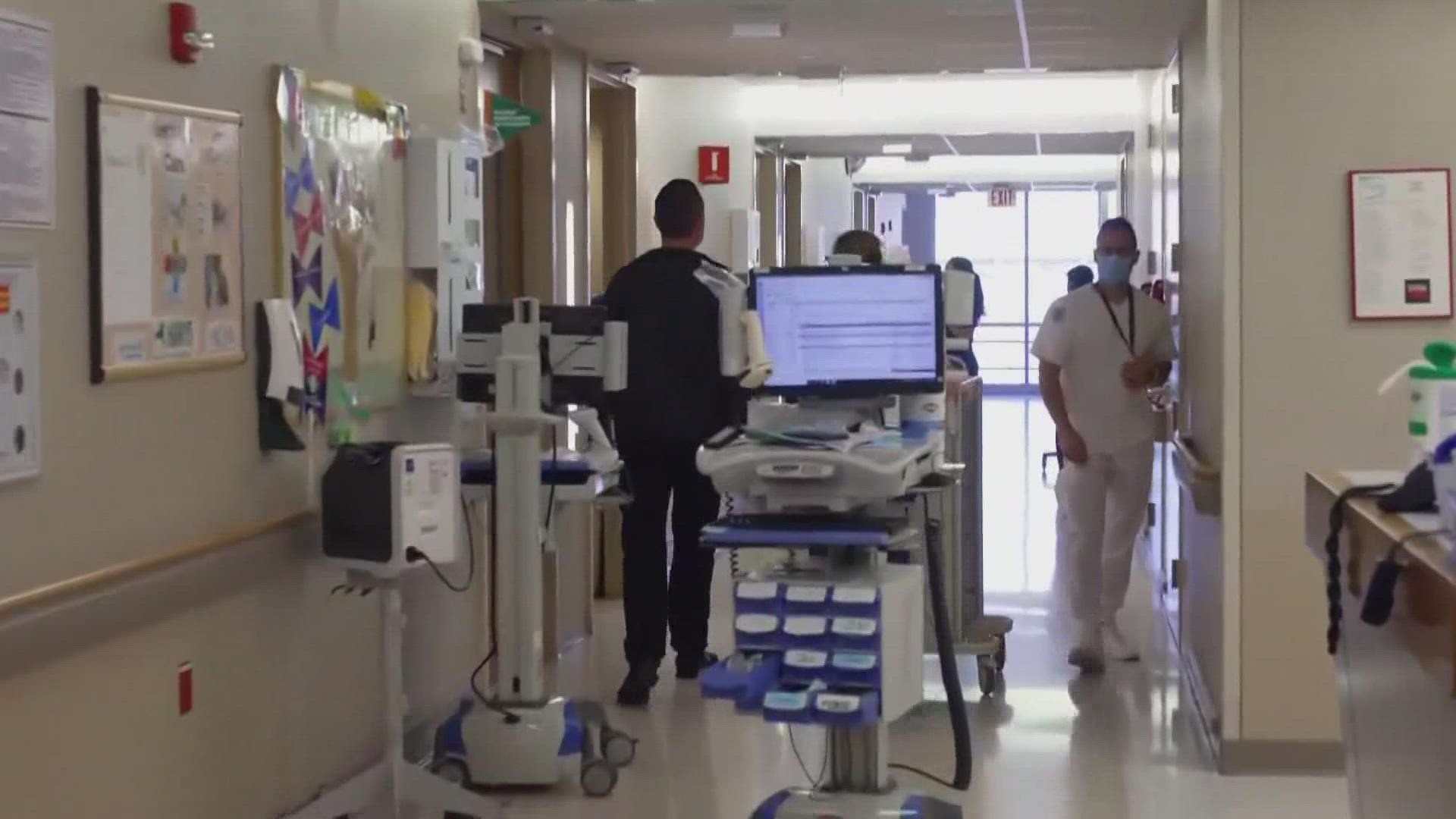NEW ORLEANS — After the holidays, doctors are seeing a spike in the number of people being admitted to hospitals with severe illnesses from COVID.
So, what's going on, and who needs to take precautions?
It's news none of us wants to hear, especially before we all gather on the streets for Mardi Gras parades.
Doctors say there is a specific group of people who are most at risk.
State health officials say COVID hospitalizations are up in the state by almost 60 percent from last month. So are deaths from COVID, but this surge is not threatening hospital capacity.
“In New Orleans, we are seeing a bit more hospitalizations, but it's obviously nothing compared to what it was before. It's usually in an at-risk population though, more so than we even saw before,” explained Dr. Josh Denson, Tulane Pulmonary Diseases and Critical Care Medicine Specialist and Medical Director of Medical Intensive Care.
Dr. Denson says this time severe illness is mostly hitting one group.
“The people that are getting it, and actually getting sick from it now, tend to be more frail, more immunocompromised, or have immune deficiencies,” he said.
A new Omicron variant is circulating named XBB.1.5.
It's more transmissible. WHO says it's the most easily spread of all past ones.
There is no indication that it causes more severe illness.
Having both a previous Omicron infection and the latest booster offer protection.
The Louisiana Health Department says there are no mandates.
“Most people in the population have either been vaccinated and boosted, or they have been exposed to the virus itself either once or twice, and therefore, I think, they have more immunity. So, we are not seeing the same level of the disease we have before,” Dr. Denson said.
That applies to 95 percent of us in Louisiana who have had vaccines, the infection, or both. So, here's what you need to know, and this is especially for people who have a low immune system.
“The vaccines are safe. The boosters are effective. It's clearly saved a lot of lives, and we're not having as many people dying in the hospital despite having an obviously an increased number of cases,” he added.
“I would recommend if you're not vaccinated, get vaccinated. If you haven't gotten the bivalent shot, get the bivalent shot. And then think about masking intermittently when you're in a public situation and test before you go see anybody medically vulnerable,” said Dr. Susan Hassig, Associate Professor of Epidemiology at Tulane School of Public Health and Tropical Medicine.
A study found that the COVID virus was found on nearly 96 percent of the planes that were tested. So, if you are flying, that may be the time that you wear a mask.
Not one of those paper masks, but the KN95 mask.

